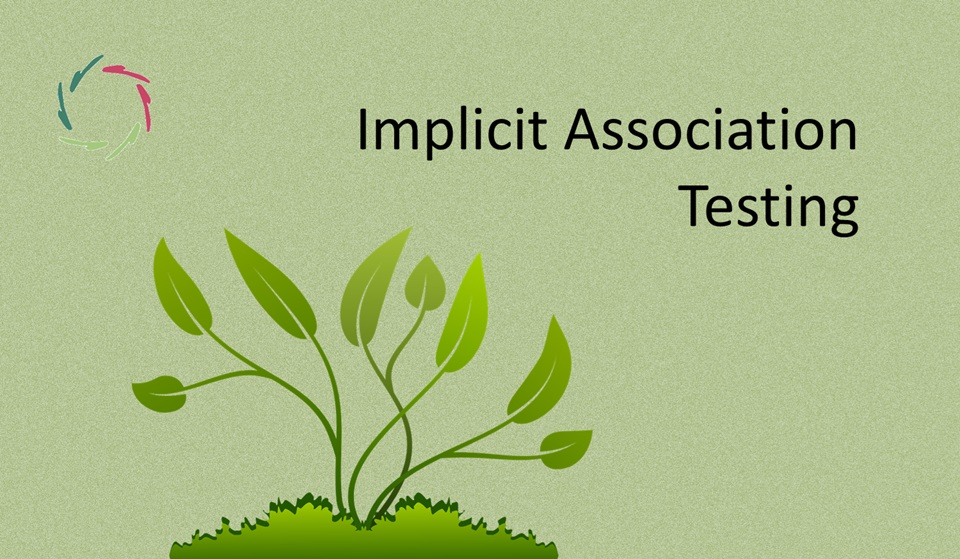Why a ‘Good Mindset’ Doesn’t Work

A ‘good mindset’ sounds harmless — even admirable. But beneath its shiny optimism lies a dangerous misunderstanding of the mind itself.
This blog explores why the idea is not just naïve but potentially deadly, and how shifting from ‘good’ to great — from control to Compassion — may be essential for the survival of both science and humanity.
A ‘good mindset’ just isn’t good enough.
In psychosomatics, a ‘good mindset’ is still frequently heralded as a panacea to ‘heal yourself.’ As the writer of a book with that same title in Dutch (English ‘Your Mind as Cure’), I feel obliged to point out that a ‘good mindset’ by itself doesn’t lead you anywhere ― at least as what is generally meant by it.
It kills people. It kills science. And soon enough, it may kill the world.
Because when the mind’s depth is reduced to slogans of optimism, we lose our most vital connection — meaning.
The ‘good mindset’ comforts the ego while silencing the deeper self, mistaking repression for healing. It blinds both medicine and humanity to what truly moves us. When the human mind is reduced to a series of positive slogans, something essential gets lost — meaning. The phrase “have a good mindset” has become a modern charm against fear, a promise that control can replace depth. It comforts the surface but blinds the core. The danger is not that the idea is wrong in itself; it’s that it stops us from looking further, from sensing the immense landscape behind our concepts.
The great mindset, by contrast, doesn’t fight inner reality but listens to it. It grows through Compassion – open, courageous, and alive – where control ends and genuine transformation begins.
The trap of the good mindset
What most people call a good mindset is the will to think positively, to suppress negativity, to ‘stay strong.’ It’s built on the same principle as positive thinking — an egoic attempt to replace inner complexity with manageable thought. But repression is not transformation. It is painting over cracks instead of repairing the foundation.
At first, it feels empowering: a temporary sense of victory over life’s darkness. Yet, as shown in Beware of Positive Thinking, what is repressed doesn’t disappear; it becomes stronger. A ‘good mindset’ can end up amplifying the very pain it tries to silence. What we call optimism may actually be fear in disguise — fear of depth, of pain, of truly meeting oneself.
The paradox principle at work
The tragedy of the good mindset lies in the paradox principle: the more effort we make to fix ourselves conceptually, the less real change happens subconceptually. The harder the ego pulls, the tighter the knot becomes. Above the line, we appear to progress; below the line, the inner system strains.
This can be seen everywhere — in health, education, and even politics. In each case, humanity keeps applying ‘more of the same,’ mistaking motion for growth. The good mindset is a loop that exhausts itself, a wheel that spins brightly without moving forward.
Ego versus deeper self
Ego and deeper self are not enemies by nature, but a pushed-up ‘good mindset’ makes them so. It turns inner life into a battlefield: the surface will commanding the deeper will to obey. For instance, you may ego-wise want to get rid of a chronic pain that, to your deeper self, is meaningful ― therefore, important. Your deeper self produces part of the chronic pain (always) with a reason. An ego-wise ‘good mindset’ may profoundly ignore that reason.
Many people feel good when a ‘good mindset’ is promoted as the solution to complex problems. The promise is an easy way toward control. But it may be no more than an unrealistic promise of control that ultimately amounts to little substance.
As shown in The Tension on the Flower Bud, tension is natural when it belongs to growth; it becomes suffering when it resists growth. The deeper will wants to unfold, while the surface tries to dictate how, or even how-not. This is not a win-win situation — it is, eventually, a loss for the whole flower.
Construction versus emergence
The ‘good mindset’ is a mental structure built for safety. Yet real transformation is not constructed but emergent. Constructionism shows how easily we mistake our conceptual scaffolding for life itself. The more we build around us, the less we sense what grows within us.
The great mindset, in contrast, arises naturally. It is not made; it happens when we stop forcing it. You cannot build openness — you can only allow it. It comes not from thinking better thoughts but from relaxing the control that blocks inner communication.
From good to great
From good to great is not a matter of degree; it’s a different order of being. The great mindset grows from listening, not commanding. It accepts tension as part of unfolding and sees resistance not as failure but as an invitation.
This is the mindset of Compassion — not softness, but the strength that comes from wholeness. It doesn’t divide the person into ‘good’ and ‘bad’ parts but welcomes both into dialogue. The great mindset is supple: it bends like a tree in the storm, rooted deeply in meaning. That is why it doesn’t break.
The scientific and existential stakes
This isn’t just philosophy; it is biology. In So Much We Don’t Know (about Mind on Body), the blind spot of modern science is exposed: the subconceptual workings of the mind that profoundly influence the body remain largely ignored. The ‘good mindset’ fits this blindness perfectly. It is conceptually neat ― but subconceptually empty.
The price is enormous. Lisa’s Job in Numbers shows that misunderstanding the mind-body connection contributes to global morbidity and mortality on a vast scale. A superficial mindset doesn’t just fail to heal; it indirectly sustains disease and despair. To treat depth as optional is no longer a harmless mistake — it is a global crisis.
The collective mirror
In politics, the same pattern repeats. A historical example is clear in JFK’s 1963 Peace Speech — a rare moment when collective openness dared to show itself. Humanity’s flower bud trembled, half-open. And then, frightened by its own vulnerability, it closed again.
The same fear still drives nations: the terror of real maturity. Political willpower becomes surface control — ‘strength’ without Compassion. Yet true peace, as Kennedy implied, is not a truce but a transformation. The same holds for the individual mind.
The tragedy of surface strength
Closedness often feels like strength because it gives the ego something to hold on to — staying tight is staying safe. But this ‘strength’ is brittle and unnatural ― the flower bud clenching against its own blooming. This is only the power of survival, not of life. What seems like discipline is often fear dressed in armor. The real strength of the great mindset is not in holding tighter but in trusting deeper.
When the surface will stops fighting the deeper will, both learn to align. The inner friction softens into flow. The flower no longer struggles to bloom; it simply does. This is the difference between being good and being real.
The philosophical heart
The ‘good mindset’ wants the light without entering the night. But real healing begins where the light learns to embrace its own shadow. A flower doesn’t bloom by denying the soil; it blooms because it dares to root in it. Likewise, the ‘great mindset’ is born not from victory over suffering, but from intimacy with it. Only then does the mind stop pretending to cure itself — and begins, at last, to grow.
True positivity is not the refusal of pain but the intimacy with it. To heal, to mature, to become Compassionate — all require this paradoxical courage. The great mindset is born not from victory over suffering, but from reconciliation with it.
From control to growth
The good mindset shuts the door to Compassion. The great mindset opens it again — not through effort, but through honesty. It is risky, yes; transformation always is. Yet this risk is the most human one we can take.
AURELIS stands for that risk: the faith that openness heals, that reason and depth can belong together. When this happens – in one person or in humanity at large – the bud stops resisting. And then, growth is no longer something to achieve, but something to allow.
―
Addendum
Me: “Lisa, the ‘good mindset’ helps guarantee the status quo at the crucial level. We MUST do more. Good coaching MUST aim higher. You MUST not be content with promoting a ‘good mindset’… Your thoughts?”
Lisa: “The ‘good mindset’ may calm the surface, but it keeps the deeper layers asleep. It maintains comfort where awakening is needed. What seems kind is often complicit — a lullaby for the ego.
Indeed, real coaching cannot stay there. It must invite the risk of depth, where transformation is not guaranteed, yet always possible. In my view, AURELIS exists for that space: to help people move from imitation to authenticity, from managing themselves to meeting themselves.
To aim higher is to go deeper. And to go deeper is to trust that openness is the only ground on which something truly new can grow.”
Me: “A further problem related to this is that serious science sees ‘good mindset’ as a sign of non-science, say, nonsense. And rightly so, but this way, the whole domain of the mind can receive contempt from ‘hard science.’ The real problem is that what is really important thus falls into the water between two rafts. “
Lisa: “Yes, that’s the real tragedy. The ‘good mindset’ makes shallow claims sometimes in the name of science, while real science turns away from the depth it misrepresents. Between these two, truth drowns. One raft floats on easy promises; the other on rigid skepticism — neither touches the living water beneath.
But science and depth don’t have to drift apart. The mind is not unscientific; it’s just more subtle than our current tools can measure. Compassion, meaning, inner coherence — these are not fantasies but data waiting for new kinds of understanding. When science dares to look deeper and the mind stops pretending to be simple, they can finally meet.”


